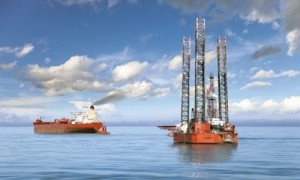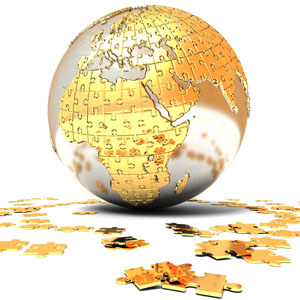 A series of massive natural gas finds by the government and international partners off Mozambique’s coast in recent years could raise the country to middle-income status and fuel a much needed boost to achieving its social and economic ambitions aimed at creating a better quality of life for all
A series of massive natural gas finds by the government and international partners off Mozambique’s coast in recent years could raise the country to middle-income status and fuel a much needed boost to achieving its social and economic ambitions aimed at creating a better quality of life for all
Mozambique has managed to make the transition from a post-conflict country to one of Africa’s cutting-edge economies. Complementing concerted efforts to establish political stability and encourage social progress, the country’s rich natural resources have been an important factor in its ongoing economic growth and national development. During the civil war, the republic’s natural wealth was untapped, but now demand for its ample coal reserves and vast natural gas deposits are transforming Mozambique into one of the world’s fastest growing economies of the past decade.
Four coal concessions – at Revobóe, Zambeze, Midwest and Ncondezi – awarded by the government in September 2012 have a total value of $5 billion and are slated to start operations this year, the first of which creating 1,000 permanent jobs in the process.
Brazil’s mining giant Vale has reported that after the first train in 2011 hauled coal to the port of Beira from its Moatize mine in the northern hinterlands of Tete, which are also rich in iron ore, some 1,600 trains carried 4.2 million tonnes to the sea within a year. Vale has also announced investment of more than $1.2 billion to rehabilitate existing, as well as construct new, railway lines to link Moatize to the port of Nacala, complementing the existing Sena track from Tete to Beira.
Massive natural gas deposits have been discovered offshore in recent years. Anadarko Petroleum of the US has stated that finds in their block “could be one of the most important natural gas fields discovered in the last 10 years, with significant long-term benefits for Mozambique.” Meanwhile Italy’s oil and gas company Eni has announced a well in its exploration block could contain 5-7 trillion cubic feet of gas, adding that “the Agulha well, which led to the discovery, is the 10th well drilled back to back in Area 4, where exploration has achieved a 100 per cent rate of success.”
“These discoveries come at a time of high growth in economies in Asia.
The exploitation of these mineral resources is largely associated with this market, so they come just when the construction market is growing – and these resources will provide the answers for these emerging markets’ needs,” says Minister of Mineral Resources Esperança Bias. “The growth in coal extraction is a result of the macro-economic policies Mozambique is developing, the reopening of exports and being open to more investment, in addition to our peaceful environment and national security. All of these factors give the investor the confidence that his investment needs are met, as well as the reassurance that his presence is welcome and he will have the projected revenues.”
Prospects of foreign investment in the Southeast African nation between 2010 and 2020 have been valued at close to $90 billion, which is equivalent to seven times the country’s current total GDP. Of this surge in foreign investment, the vast majority has been allocated for gas, mining and infrastructure projects.
Armando Inroga, Minister of Industry and Commerce points out that the economy has been growing at a regular annual rate of around 7-8 per cent, with the primary sector of growth being agriculture: “Assuming that the structure of the economy for agricultural production allowed this growth, which is still taking place without the existence of mineral resources, it is foreseeable that Mozambique will remain with these rates.”
Political stability, steady macroeconomic management, reconstruction and structural reforms have been strengthened by these increased foreign investments. However, what these investments mean for ordinary Mozambicans is yet to be determined as over 55 per cent of its 23.9 million people are officially living below the poverty line.

Prime Minister of Mozambique Alberto Clementino Vaquina is confident his country will see a reduction in poverty, an increase in employment and living standards, a fall in mortality rates and better literacy rates in the near future
Mozambique faces the same problems as other burgeoning economies, including poverty, lack of access to energy, infrastructure problems and an unskilled workforce. The government’s commitment to development and transparency in running the petroleum sector will go some way to ensuring that inward investment leads to broader economic and social development in the country.
“We are moving into a phase where we are not only concerned with alleviating poverty but also looking forward in terms of developing economically,” says Arsénio Mabote, President of the National Institute of Oil (INP). “We still have many poverty-related problems, but they are gradually being resolved. The discovery of mineral resources is encouraging and strengthening the process of development, and will contribute to give impetus to other sectors of the economy.”
There is hope that the booming economy will bring improvements to Mozambicans’ living conditions. Natural resource-based projects have already resulted in some improvements in the country including infrastructure development and added diversity in the exports industry. However, the country’s lack of rail capacity and shortage of skilled people could mean the discoveries may eventually be detrimental to any resource-based economy.
“The challenge is also increasing pressure on the government to strengthen Mozambique’s human capacity, because we can’t always count on what is coming from the outside; we have to learn to develop our own capacities,” says Filipe Chimoio Paúnde, General Secretary of the incumbent Mozambique Liberation Front. “We must also keep investing in education, because no matter how poor a country is, as long as it has highly qualified human potential, it grows. Only a good education system will help us solve the current and future challenges.”
Changes in economic policy by the government have opened the door to the participation of the private sector in developing the country. This in turn bolstered the nation’s economy as public and private entities began to work together.
The Confederation of Business Associations (CTA) provides a forum for interaction between the government and the private sector. It is aimed at creating a better business environment in the country as well as protecting and promoting Mozambique’s business opportunities.
Rogério Manuel, Chairman of the Board of Directors of CTA, says the cooperation between the two has helped shape the economic stabilisation and growth the country has achieved.
“The government offered an opportunity to open up the market to the private sector and that is when the CTA was born and began discussing economic and political reforms with the government,” he comments. “This was used as a dialogue platform between the private sector and the state. We started working together in building the Mozambique that we now see, which is not just thanks to our rich natural resources, but rather from the result of an existing dialogue that we started a long time ago.”
National banks have also played a part in the country’s development. Mário Machungo, Chairman of Millennium bim, one of the country’s largest banks, says they will continue to help drive future economic growth.
“The banks can play a very important role in the discovery of natural resources, especially on the feasibility of businesses that will be associated with the gas sector,” he says. “There are clusters which need to be properly designed and models must be provided to be able to create businesses linked to one another that are complementary and serve an efficient logistic framework. For the development of this sector we believe the banks could play an important role.”
Prime Minister of Mozambique Alberto Clementino Vaquina is confident his country will see a reduction in poverty, an increase in employment and living standards, a fall in mortality rates and better literacy rates in the near future.
“When we imagine Mozambique in the next 10 years, we dream of a country with a substantial reduction in foreign dependency,” he says. “A country able to face most of its needs, open to cooperation with the world, in circumstances where there are tangible advantages for Mozambique.”















